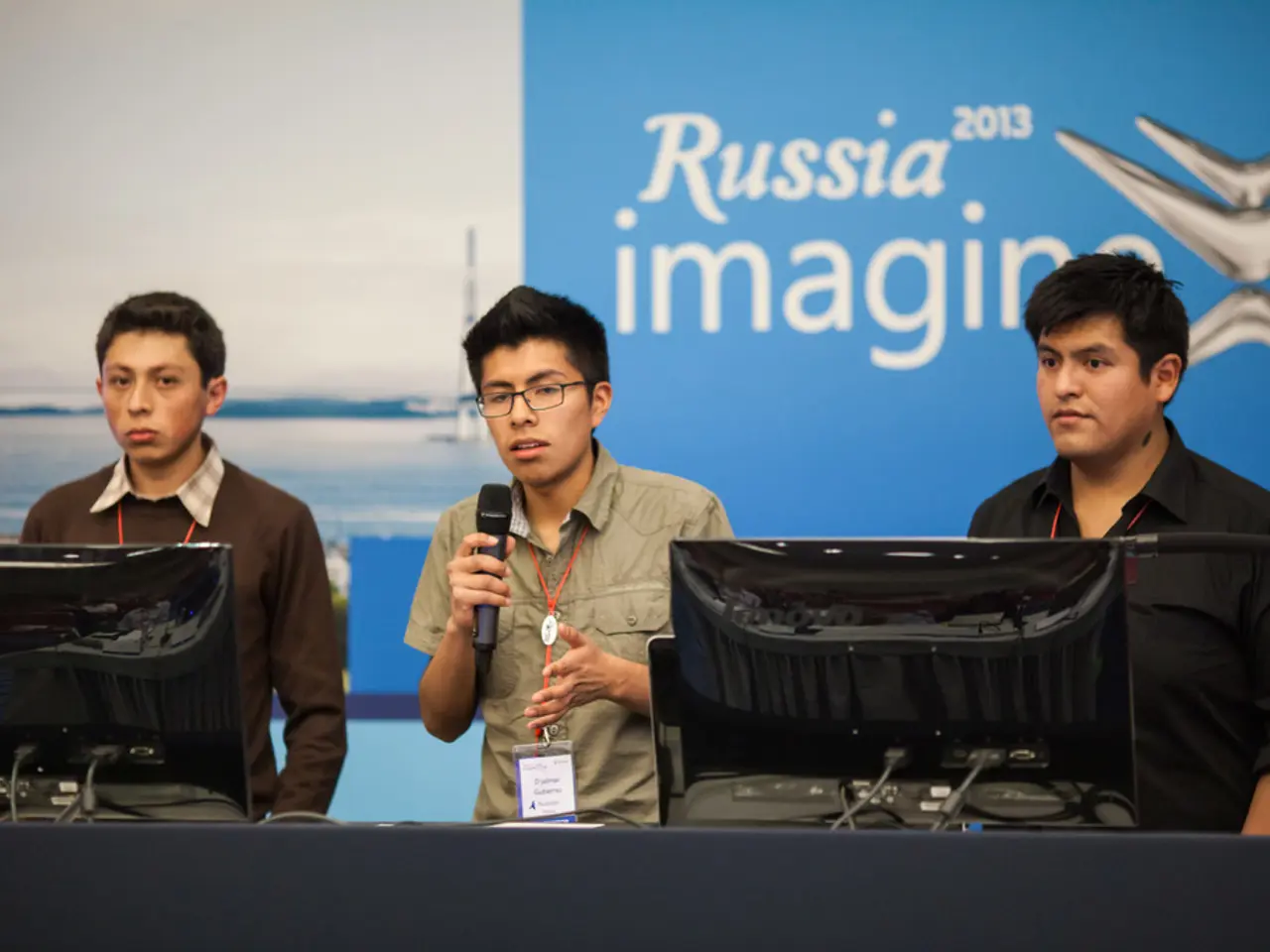Trump-Russia meeting yielded numerous benefits, yet peace remains elusive - analyst's perspective
In recent developments, Russia's actions and proposals in the ongoing Ukraine negotiations have raised eyebrows, as they appear to antagonize Ukraine and the US, while positioning itself as a country interested in peace. This strategy, according to experts, is an attempt to make offers that Ukraine cannot agree to, all the while maintaining the image of a peacemaker.
During a series of talks, one of Russia's proposals was for Ukraine to immediately hand over the entire Donetsk region, including territories not yet controlled by Russia, and then negotiate a freeze of the front and further ceasefire process. However, the researcher did not clarify what exactly was discussed in these talks.
The US President, Donald Trump, has shown an interest in peace, as Russia is perceived as a country also interested in peace. This alignment is evident in Trump's approach during their meeting in Alaska. There are ideological similarities between Trump and Putin, with both leaders sharing a 19th-century political view. The US President is incentivized to pursue peace due to electoral cycles and the need for "political points at home."
Despite this, progress towards ending the war in Ukraine remains a slow and distant scenario. Peace in Ukraine has not come any closer, according to the researcher. The visit of the Russian leader to the US, at the invitation of President Donald Trump, is considered an "unequivocal success" for Russia by an expert. However, the researcher finds it too early to judge the practical impact of the meeting.
Meanwhile, Ukraine and its European allies have maintained more hardline positions, seeking full Russian troop withdrawal, return of kidnapped Ukrainians, prosecution of war crimes, and guarantees against future aggression. The European side also favors a ceasefire monitored by a coalition of willing countries, which Russia rejects.
Russia's current negotiation objectives remain demanding and maximalist, anchored in territorial expansion and security guarantees, reinforced by improved relations with the Trump administration. Russia is insisting on "Ukrainian security guarantees" that could restrict Ukraine's opportunities for NATO membership and the presence of foreign military personnel in Ukraine.
Putin continues to leverage this situation to his advantage, using his irreplaceable status as president to "play the long game." However, Russia is still seen as not genuinely committed to serious peace negotiations and remains focused on Ukraine’s full capitulation.
It is important to note that there is not a complete consensus within the White House on how to deal with Russia, leading to a "tug-of-war" in US foreign policy towards Russia. Despite this, the meeting between the US and Russia did not involve discussions about economic cooperation, suggesting that any potential developments in this area may be secondary to the ongoing conflict in Ukraine.
In conclusion, Russia's negotiation strategy in Ukraine remains complex and multifaceted. While Russia may be using the meeting to develop its bilateral relations with the US, its maximalist objectives and reluctance for substantive peace talks continue to pose challenges for a lasting resolution to the conflict.
Read also:
- United States tariffs pose a threat to India, necessitating the recruitment of adept negotiators or strategists, similar to those who had influenced Trump's decisions.
- Weekly happenings in the German Federal Parliament (Bundestag)
- Southwest region's most popular posts, accompanied by an inquiry:
- Discussion between Putin and Trump in Alaska could potentially overshadow Ukraine's concerns








